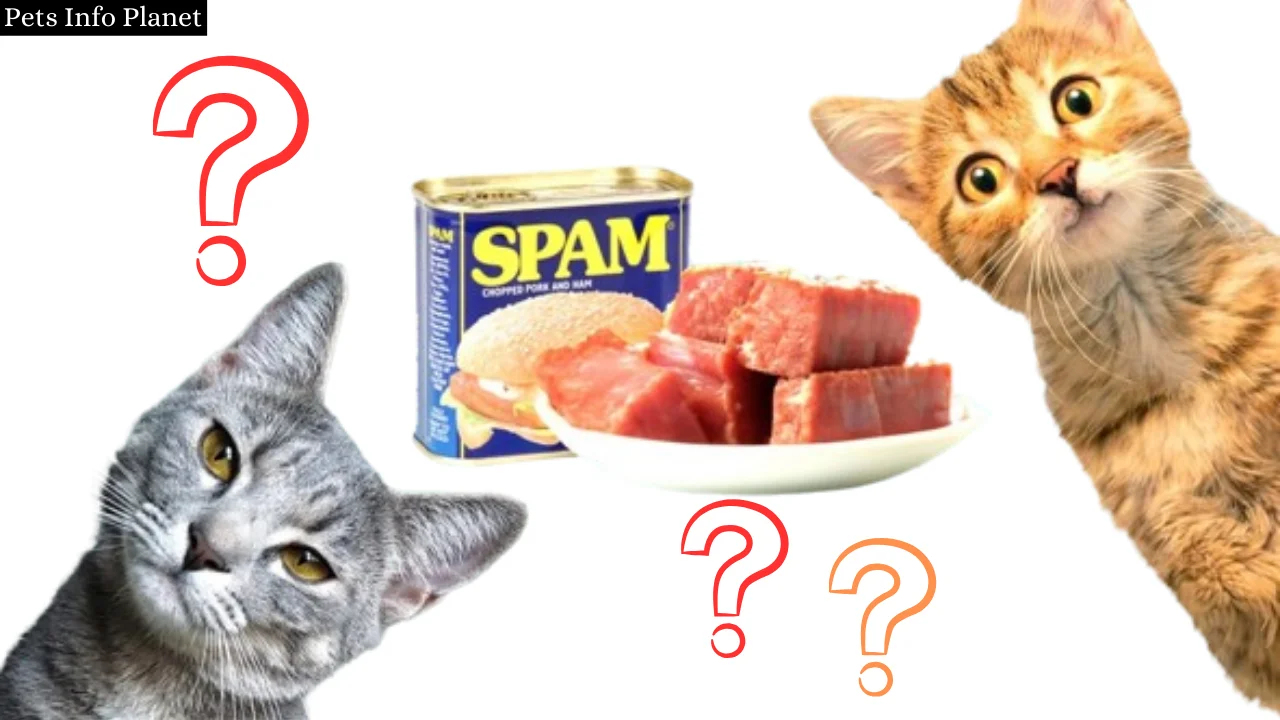Can cats eat Spam? This inquiry leads us into feline dietary exploration, where pet owners seek clarity on their companions’ nutritional needs. As conscientious guardians, understanding what constitutes a safe and balanced diet for our cherished feline friends is paramount. In this comprehensive guide, we delve into the intriguing world of feline nutrition to determine if Spam can be a part of their diet.
We examine the nutritional composition of Spam, considering its potential benefits and risks for cats. Through careful exploration, we aim to equip pet owners with the knowledge to make informed decisions about their cats’ diets. Join us on this journey as we navigate the complexities of feline nutrition and address the question: Can cats eat Spam?
Exploring the Nutritional Composition of Spam: Can It Meet Cats’ Dietary Requirements?
This section delves into Spam’s nutritional makeup to ascertain its compatibility with cats’ dietary needs. Ham, a processed meat product, raises questions regarding its suitability for feline consumption. By thoroughly examining its nutritional composition, we aim to determine whether SpamHam can fulfill cats’ essential dietary requirements.
Protein Content:
Cats are obligate carnivores and rely heavily on protein for their nutritional needs. We analyze the protein content of Spam to assess whether it provides sufficient levels of this essential nutrient for cats. This examination allows us to gauge if Spam can adequately contribute to a cat’s protein intake, meeting one of their primary dietary requirements.
Fat Content:
While cats require fats for energy and nutrient absorption, excessive fat intake can lead to health issues such as obesity. We scrutinize Spam’s fat content and evaluate its suitability for cats’ diets. Understanding the fat content helps us determine if cats spam without compromising their health or leading to weight-related concerns.
Additives and Preservatives:
Spam often contains additives and preservatives to enhance flavor and extend shelf life. These additives may not align with cats’ dietary requirements and could potentially pose health risks. By investigating the presence and effects of additives in Spam, we can determine whether cats can safely consume it without adverse reactions or digestive issues.
Essential Nutrients:
Cats require nutrients like taurine, arachidonic acid, and vitamins to maintain optimal health. We examine the nutritional profile of Spam to determine whether it provides these essential nutrients in adequate amounts. This analysis helps determine whether Spam can contribute positively to a cat’s nutrition and well-being.
Comparison with Natural Foods:
We conduct a comparative analysis to gauge the nutritional value of spam relative Spam natural cat foods, such as lean meats or high-quality cat food. This comparison allows us to evaluate whether Spam can serve as a viable dietary option for cats or if natural foods are more suitable. By examining how Spam attacks Against natural foods, we gain insights into its potential role in effectively meeting cats’ dietary requirements.
Can Cats Eat Spam Safely?: A Detailed Examination of Its Suitability for Feline Consumption
This section thoroughly investigates w
hether cats can consume Spam without exposure to health effects. Given Spam’s processed nature and potential additives, safety concerns arise regarding its suitability for feline consumption. Through meticulous examination, we aim to determine whether cats can safely incorporate Spam into thSpamdiets.
Digestive Compatibility:
Cats have sensitive digestive systems, and certain foods can cause gastrointestinal distress. We delve into the digestive compatibility of Spam for cat spam and whether its composition is gentle on their stomachs. This examination aims to ascertain if cats can consume Spam without causing digestive issues such as vomiting or diarrhea.
Allergenic Potential:
Cats can develop allergies to certain foods, leading to skin irritations, digestive disturbances, or respiratory issues. We explore the allergenic potential of Spam for cats, investigating common allergens in its ingredients. This scrutiny helps determine if Spam poses any allergy risks to cats and if felines with food sensitivities can safely consume it.
Nutritional Adequacy:
A balanced diet is crucial for cats’ overall health and well-being. We evaluate the nutritional adequacy of Spam for cats by consuming its protein, fat, and essential nutrient content. This assessment determines if Spam can provide the necessary nutrients for optimal health without deficiencies or imbalances.
Potential Health Risks:
Spam may contain additives, preservatives, or high sodium levels, which can pose health risks to cats. We examine the potential health risks of cat spam consumption, including obesity, kidney issues, and sodium toxicity. This analysis helps identify any potential hazards that may arise from including Spam in a cat’s dieSpameterinary Recommendations:
When introducing new foods into a cat’s diet, consulting a veterinarian is essential. We emphasize the importance of seeking veterinary guidance to assess the safety and suitability of Spam for cats. VeteRinarians can provide personalized recommendations based on a cat’s health status and dietary needs, prioritizing their well-being.
Assessing the Risks and Benefits of Introducing Spam into Your Cat’s Diet
When considering adding Spam to your cat’s Spam, weighing the potential risks against any benefits it may offer is essential. This assessment evaluates various factors to determine whether Spam is a suitable Spam option for your feline companion.
Nutritional Content:
Spam contains protein and fat but may lack the essential nutrients for cats’ optimal health. Assessing its nutritional content helps determine if Spam can contribute significantly to your cat’s diet or if it falls short of meeting its dietary requirements.
Potential Health Risks:
Spam often contains additives, preservatives, and high sodium levels, which can pose health risks to cats. These include obesity, kidney issues, and sodium toxicity. Evaluating these potential risks is crucial in deciding whether introducing Spam into your cat’S pamet is advisable.
Digestive Compatibility:
Cats have sensitive digestive systems, and certain foods can cause gastrointestinal distress. Considering how Spam may affect you, Spamt’s digestive health helps assess whether it can be consumed without causing vomiting, diarrhea, or other digestive issues.
Allergenic Potential:
Cats can develop allergies to certain foods, leading to skin irritations, digestive disturbances, or respiratory issues. It is essential to assess the allergenic potential of spam termine if it poses any allergic risks to your cat.
Veterinary Guidance:
Before introducing new foods into your cat’s diet, it is recommended that you consult with a veterinarian. A veterinarian can provide personalized recommendations based on your cat’s health status and dietary needs, helping you decide on the risks and benefits of feeding Spam to your cat.
More Read:
How to Crochet the Cheshire Cat Hoodie?
Conclusion
In conclusion, the question “Can cats eat spam?” necessitates a nuanced examination of feline nutritional requirements and the composition of this processed meat product. While Spam contains protestant fat, it may lack essential nutrients for cats’ optimal health.
Moreover, spam additives, preservatives, and high sodium levels pose potential risks to cats, including obesity and kidney issues. Prioritizing feline well-being mandates consulting a veterinarian before incorporating Spam into a cat’s diet. Spameterinary guidance ensures personalized recommendations are aligned with a cat’s health status and dietary needs.
They understand spam’s digestive compatibility and allergenic potential, which aids in assessing its suitability for feline consumption. Ultimately, maintaining cats’ health requires informed decisions, where the risks and benefits of feeding spam are carefully weighed against their dietary requirements. Therefore, while “Can Cats Eat Spam?” caution and veterinary guidance are paramount to safeguarding their well-being.
FAQ’s
Is Spam OK for cats?
Spam is not recommended for cats due to its processed nature, lack of essential nutrients, and potential health risks such as obesity and kidney issues.
What are three toxic foods for cats?
Three toxic foods for cats include chocolate, onions, and grapes/raisins. If ingested by cats, these foods can cause various health issues, such as vomiting, diarrhea, kidney failure, and even death.
Can cats and dogs have Spam?
While cats and aSparagus can technically eat Spam, it’s not reSponded due to its processed nature, lack of essential nutrients, and potential health risks, such as obesity and digestive issues.

